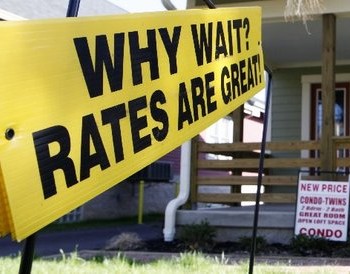 If you have watched home design networks such as HGTV or DIY recently, you may have noticed the outrageously large number of house flipping shows. Flip or Flop, Flip this House, Masters of Flip, Flipping Out, Beach Flip – the list goes on and on. While it appears that everyone is making money flipping houses, the question that often arises is – does house flipping result in profits like those seen on the major TV networks? Before stepping into the house flipping game, it is important to have a clear understanding of the process, opportunities and risks in today’s market.
If you have watched home design networks such as HGTV or DIY recently, you may have noticed the outrageously large number of house flipping shows. Flip or Flop, Flip this House, Masters of Flip, Flipping Out, Beach Flip – the list goes on and on. While it appears that everyone is making money flipping houses, the question that often arises is – does house flipping result in profits like those seen on the major TV networks? Before stepping into the house flipping game, it is important to have a clear understanding of the process, opportunities and risks in today’s market.
Median Home Values Rise Above $400,000
Sure, the concept of buying a home on the cheap, renovating it and making a quick profit seems easy. However, the real estate market has been heating up on both the local and national level and data suggests that house flipping activity is near all-time highs. In fact, the nation’s largest multi-sourced property database ATTOM Data Solutions notes that nearly 80,000 homes and condos were flipped nationwide during the second quarter of 2021, the highest number since 2006. While house flipping activity has been strong, a combination of low inventory, low interest rates and the impact of the pandemic have all led to higher home values. In fact, high demand from all buyers has led to an increase in the median existing-home price for all housing types to $404,700, up 13 percent from the previous year.
 As you can imagine, higher prices and increased competition for properties can create a drag on profitability. While ATTOM data suggests that house flipping profit is down, the report suggest that the average Gross flipping profit was still $67,000 for properties flipped in the second quarter of this year.
As you can imagine, higher prices and increased competition for properties can create a drag on profitability. While ATTOM data suggests that house flipping profit is down, the report suggest that the average Gross flipping profit was still $67,000 for properties flipped in the second quarter of this year.
“Home flipping rebounded during the second quarter. But profits sure didn’t, as the typical home flip around the country netted the smallest return on investment in a decade,” said Todd Teta, chief product officer at ATTOM. “However, it’s not like home flipping has become a losing proposition. A 33 percent profit on a short-term investment remained pretty decent, even after renovation and holding expenses. But with a few more periods like the second quarter of this year, investors may need to reframe how they look at these deals.”
House flipping programs tend to glamorize the process of house flipping by accentuating the profits that can be made. As a result, there are some very important factors that can influence house flipping success. First, there is a difference between the gross profit and net profit. Gross figures that are highlighted on shows like Flip or Flop ignore two critical components – carrying costs and taxes. Carrying costs are the expenses associated with the property until it is sold and they can really add up quickly. For example, financing costs, real estate taxes, insurance and other carrying costs create a negative drag on profits and are often partially overlooked by investors. Remember, the longer your money is tied up in the property, the higher the carrying costs will generally be.
After getting a handle on carrying costs, it is important to understand the impact of taxes. Since house flippers generally target purchasing, renovating and selling a property in less than one year, any gains will be taxed as short-term capital gains – generally at the unfavorably high ordinary income tax rates. For example, if you are in the 28% marginal bracket and make a $50,000 profit, you may need to pay capital gains taxes on both the state and federal level, resulting in a net profit of closer to $32,000. When determining whether to move forward with a purchase it is always critical to use net profit rather than gross profit.
 Be Conservative with Your Assumptions
Be Conservative with Your Assumptions
House flippers must also be very careful with their assumptions. Too often, investors underestimate renovation costs and overestimate future sale prices resulting in realizing significantly less profit (or maybe even a loss). Forecasting that the current strength in the real estate market will continue indefinitely may not be realistic. Instead, be sure to consider worst case scenarios for renovation expenses and sale prices. Remember, while it is certainly a sellers’ market, each market is different and it is important to work with a real estate professional, accountant and attorney to help determine your projected sale price, tax impacts and a review of contracts. While house flipping can be profitable, it is not appropriate for all investors and it is important to understand the difference between Flip or Flop and real life – especially in today’s market. Since everyone’s financial situation is unique, consider speaking to your financial advisor to determine the most appropriate approach for you.
Kurt J. Rossi, MBA, CFP®, AIF® is a CERTIFIED FINANCIAL PLANNER & Wealth Advisor. He can be reached for questions at 732-280-7550, kurt.rossi@Independentwm.com,www.bringyourfinancestolife.com & www.Independentwm.com. LPL Financial Member FINRA/SIPC.










